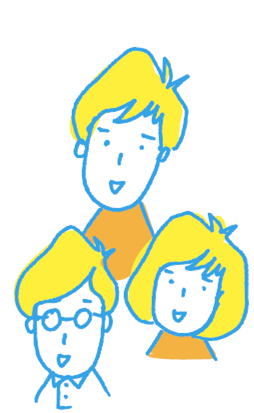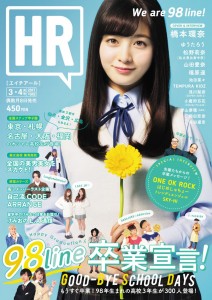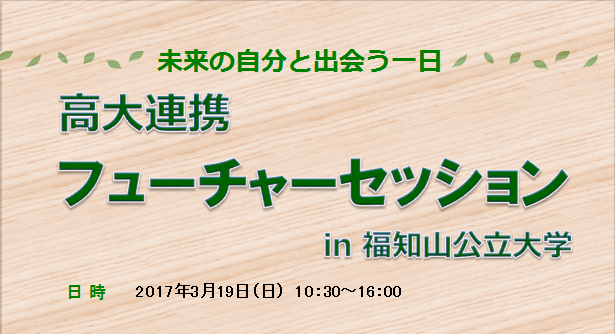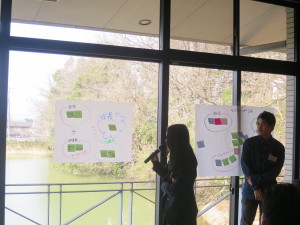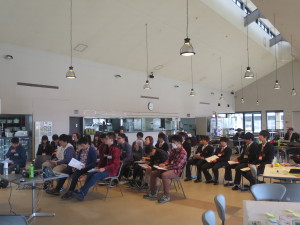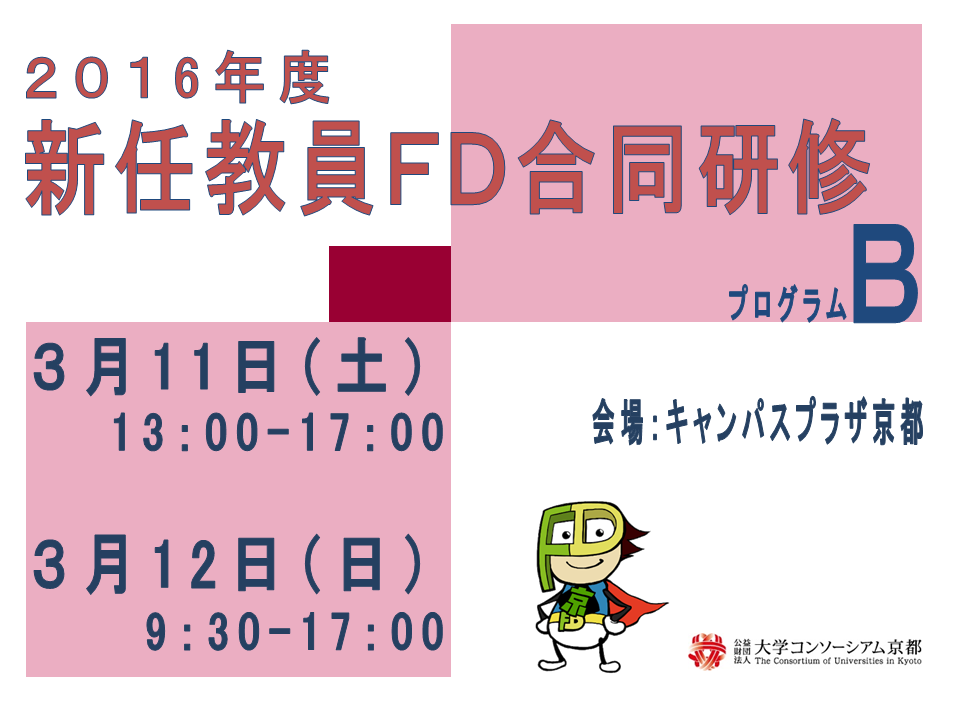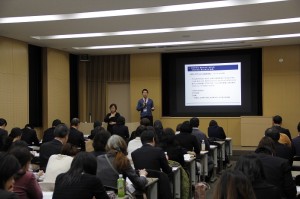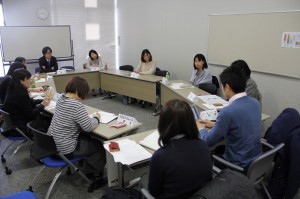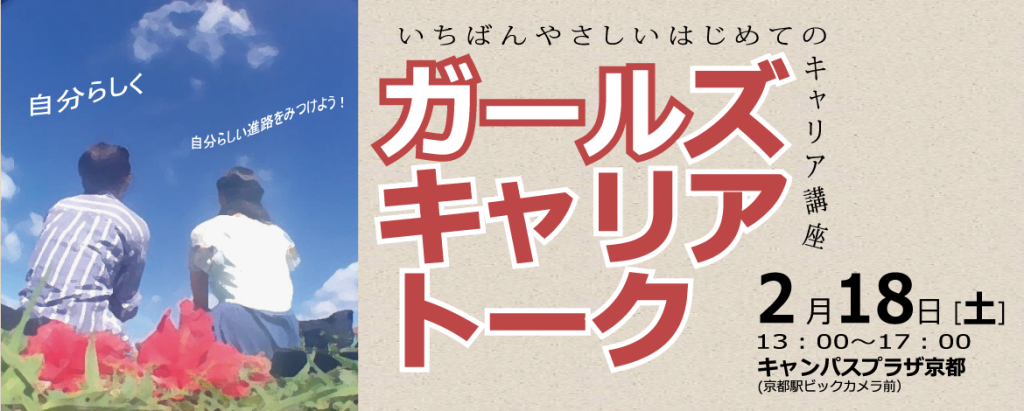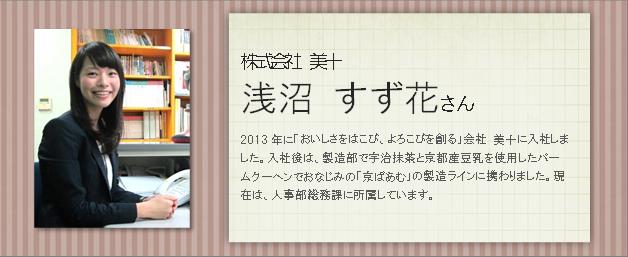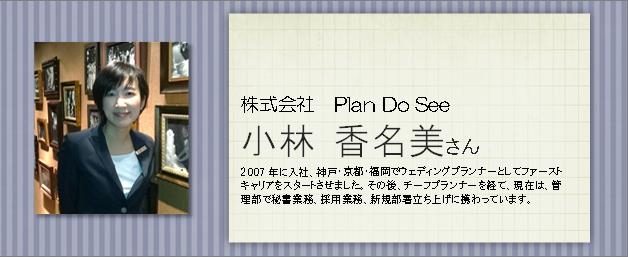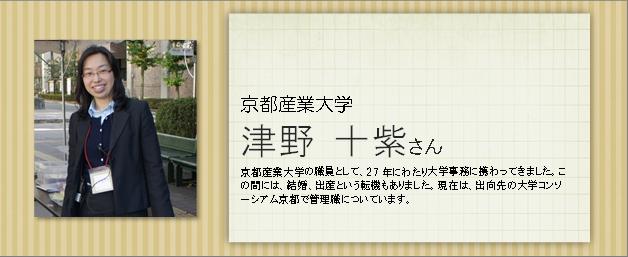|
number
1
minute
department
meeting
|
Imadoki’s University Education and “Good Learning”
~Issues and practical tips for first-year education and general education found in co-creation workshops~
Capacity: 160 people / Priority capacity: 100 people
The theme of the project is “Motivating, encouraging, and learning with students.” In the first half of the session, we will uncover issues through a co-creation workshop in which everyone at the venue participates, and exchange the results. In the second half of the session, there will be case reports, question-and-answer sessions, and discussions from the speakers, and we hope that each participant will develop new insights and ideas, and that the desire to “change/change” will increase.
≪ Reporter≫
Hiroshi Igami (Professor, Faculty of Economics, Kobe International University)
Mina Matsumoto (Yomiuri Shimbun Expert Committee)
Tomoaki Matsuo (Associate Professor, Institute for the Promotion of Common Education, Kyoto Sangyo University)
Hideo Kubo (Associate Professor, Faculty of Law, Kyoto Sangyo University)
≪ Coordinator≫
Kenichi Sato (Professor, Faculty of Integrated Life Sciences, Kyoto Sangyo University)
|
number
2
minute
department
meeting
|
On the Design of Basic Science Education
Capacity: 120 people / Priority capacity: 70 people
In the excellent educational practice reports of the sciences, I hear voices such as, “It’s wonderful, but is it a good fit for us?” In other words, we planned a subcommittee based on the idea that “if it is a meta-level perspective related to practice and design, it may be useful in a wide range of areas, even if it does not have an immediate effect.” I would like to invite three speakers to give lectures on the design philosophy of the basic science curriculum, the design and implementation philosophy of organizational and systematic learning support, and the main points of basic education in science mathematics based on the mathematics competency survey, and then discuss with the floor.
≪ Reporter≫
Dr. Katsuhiko Aoki (Advisor/Professor, Center for Mathematical Science and Engineering, Kanazawa Institute of Technology)
Masaaki Ogasawara (President, Japan Society of University Education / Professor Emeritus, Hokkaido University)
Ryuichi Mizumachi (Associate Professor, Department of Computer Engineering, Shonan University of Technology)
≪ Coordinator≫
Yoshio Ueno (Professor, Department of Basic Sciences, Kyoto University of Pharmaceutical Sciences)
|
number
3
minute
department
meeting
|
The choice of a women’s university in the context of educational diversification
Capacity: 120 people / Priority capacity: 70 people
Historically, girls’ education has developed in a way that follows the education of boys. With the quantitative expansion of higher education, the number of female students increased, but the fields of study at women’s universities were limited to meet the needs of society. Now, an increasing number of universities are shifting to co-education, either because they have completed their mission or because of the declining birthrate, but it is a timeless and universal fact that female students have more challenges to overcome than male students in designing their life courses and career paths. Women’s colleges have abundant resources for women’s education, such as the presence of female faculty and staff who can serve as role models for working women, and it is believed that they have a certain role to play as a place to accept the drifting thoughts of female students who are forced to search for an unknown way of life different from their parents’ generation in a rapidly changing society. Now is the time for women’s colleges to speak out for themselves and show their aspirations to become the core of women’s education. We would like to use this breakout session as an opportunity to explore and discuss the future of women’s colleges together.
≪ Reporter≫
Itsuki Uchida (Professor Emeritus, Kobe Jogakuin University / Visiting Professor, Kyoto Seika University / Director of Showa University)
Rei Iwasaki (Professor, Faculty of Humanities and Sciences, Kyoto Notre Dame University)
Ms. Sayomi Iichi (Director, Information Systems Office, Mukogawa Women’s University)
≪ Coordinator≫
Tomoko Fujiwara (Professor, Faculty of Welfare and Culture, Kyoto Notre Dame Women’s University)
|
number
4
minute
department
meeting
|
Planning and management of FDs based on the context of one’s own university
Capacity: 80 people / Priority capacity: 45 people
In order to promote FD at university, it is important to plan and manage FD training that is suitable for your university. In order to achieve this, it is necessary to share information within the university, identify problems, and collaborate and understand each other between faculty and staff.
In this subcommittee, we will introduce examples of FD training at universities by the presenter, and plan and manage FD training that takes into account the context of the university to which you belong through the work.
≪ Reporter≫
Tomotsugu Takamori (Associate Professor, Center for Education and Research, Fukushima University)
Chiaki Iwasaki (Associate Professor, Department of Education, Kansai University)
Mr. Tsuyoshi Mononobe (Administrative Manager, Educational Support Research and Development Center, Kyoto Sangyo University)
≪ Coordinator≫
Masayuki Murakami (Professor, Center for Multimedia Education and Research, Kyoto University of Foreign Studies)
|
number
5
minute
department
meeting
|
How to improve learning outcomes in undergraduate seminars
Capacity: 80 people / Priority capacity: 45 people
In recent years, there have been calls for the introduction and promotion of active learning, but the reference to “seminar education” that brings learning outcomes through close dialogue between teachers and students is not always sufficient, and its practice has become a black box. In this subcommittee, we will explore a better way of undergraduate seminar education through panel discussions based on rich seminar education practice reports in the humanities and social sciences and group discussions among participants.
≪ Reporter≫
Nao Takasugi (Professor, Faculty of Law, Doshisha University)
Taro Adachi (Professor, Faculty of Letters, Kyoto Tachibana University)
Shuichi Yano (Professor, Faculty of Economics, Takasaki University of Economics)
≪ Coordinator≫
Takero Nishino (Lecturer, Center for Educational Development, Kyoto Tachibana University)
|
number
6
minute
department
meeting
|
The Honne and Hopes of the “Intermediate Leaders” Teachers Responsible for Educational Reform
~The State of Middle Management~
Capacity: 60 people / Priority capacity: 35 people
In educational management and educational reform, “intermediate leaders” such as the dean of the faculty of education, the director of the XX Institute, the director of the XX Center, and the head of the XX Office play a major role. In collaboration with the staff, I would like to think about the worries and aspirations of such “intermediate leader” faculty members, who do not want to neglect education and research, although the time and burden of meetings and coordination are large, and the ideal state of middle management, including group work. We invite a variety of people, including mid-career and young faculty members and staff, to participate.
≪ Reporter≫
Nobuhisa Namimatsu (Dean, Faculty of Economics, Kyoto Sangyo University)
Keiichi Yamamoto (Professor/Assistant to the President, Faculty of Future Creation, Hokuriku University)
Mr. Yamazaki Sono (Deputy Director, Planning Office, Kyoto University of Foreign Studies, Kyoto Junior College of Foreign Studies)
≪ Coordinator≫
Yuji Okazaki (Professor, Faculty of Social Welfare, Bukkyo University / Director, Education Promotion Organization)
|
number
7
minute
department
meeting
|
Universities and theaters, museums and galleries
Capacity: 60 people / Priority capacity: 35 people
With the establishment of project courses, universities now have opportunities to contribute to the community. However, it seems that there were only a few activities that led to actual results such as town revitalization. In addition, there is not much cooperation between universities and cultural resources, especially public facilities such as theaters, museums, and art galleries. Is it possible to reconsider the relationship between universities and cultural resources, and to seek opportunities for students to learn outside the campus? We want to create a place where we can share awareness of these issues.
≪ Reporter≫
Toshio Sogara (Professor, Faculty of Culture and Information Studies, Doshisha University)
Mr. Fumiki Miyazaki (Director, ROHM Theatre Kyoto, Kyoto City Foundation for the Promotion of Music Arts and Culture)
Yuka Inoue (Lecturer, Faculty of International Studies, Bunkyo University)
≪ Coordinator≫
Ken Kawashima (Professor, Faculty of Letters, Doshisha University)
|
number
8
minute
department
meeting
|
Specialized health and medical education: Raising the independence, satisfaction, and understanding of learners
Capacity: 60 people / Priority capacity: 35 people
Students will learn how to promote FD among young faculty members in medical university departments. In particular, I would like to think about how to improve the ability to teach practical training, which is considered difficult to acquire. Medical students are not only conscious of the national examination, but must also understand and absorb a vast amount of medical and nursing knowledge that will be useful for their future careers in a short period of time. I would like to think about efficient educational methods for this purpose. On the other hand, I would like to think about “studying at a university” rather than a vocational school, which means that not only specialized knowledge but also general education can be acquired.
First of all, Ms. Yoshiko Yagi will give a lecture titled “The Power of Teachers to Nurture Students’ Independence ~Focusing on Practical Training~”. Next, Dr. Shigecho Nishii will give a lecture titled “Specialized Knowledge→ in the Medical Field: ~From the Educational Achievements in the Medical Field~”, and Dr. Yuko Taniguchi will give a presentation on how she considers her life’s work, “Practical Efforts to Develop Health and Exercise Instructors in the Department of Health and Sports,” as a place for practical education for students. After that, I would like to discuss the themes of nursing education (including practical training), education at medical universities (classroom lectures), and the practical theme of maintaining health through exercise.
≪ Reporter≫
Ms. Tamiko Yagi (Head of Department, Department of Nursing, Tenri Medical University)
Dr. Shigetaka Nishii (Department of Psychiatry, University of Occupational and Environmental Health, Director of Education and Medical Examination for the 26th and 27th academic years)
Yuko Taniguchi (Professor, Department of Health and Sports, Faculty of Health and Medical Sciences, Kyoto Gakuen University)
≪ Coordinator≫
Satoshi Furukura (Professor, Faculty of Health Sciences, Kyoto Gakuen University)
|
number
9
minute
department
meeting
|
Learning Commons for Students by Students of Students
Capacity: 60 people / Priority capacity: 35 people
Currently, there are various names and forms, but so-called “learning commons” have been established at many universities. However, how many universities operate organically as a learning environment through collaboration between the teaching profession and academia? I think that there are many universities and people in the field who are facing problems, such as the fact that the intention of the university to open the facility is not well communicated to the students, and as a result, they are forced to increase the number of prohibited items, or they are unable to respond to the active requests of students who want to use the service in this way. Instead of putting the brakes on the accelerator, how can we create a “learning” environment that makes it easy for students to drive? In this subcommittee, we would like to consider the ideal form of a “learning commons for students by students, for students” based on the case of a university that is developing the operation of the commons and activities based on the commons.
≪ Reporter≫
Hiroka Minami (Assistant to the President, Kwansei Gakuin University / Professor, Faculty of Science and Engineering)
Dr. Morihiro Ito (Director, Commons Center, Organization for the Promotion of Student Education, Chubu University / Associate Professor, Faculty of Life and Health Sciences)
≪ Coordinator and Rapporteur≫
Takeshi Hasegawa (Director, Center for Learning Support and Educational Development, Ryukoku University / Professor, Faculty of Business Administration)
|
10th minute
department
meeting
|
Self-school education as a liberal arts education
~Issues and Prospects Concerning the Realization of the “Founding Spirit and Philosophy”~
Capacity: 60 people / Priority capacity: 35 people
In recent years, when the quality assurance of higher education has been questioned, strict grading standards are naturally required for subjects related to “self-school education.” What is “evaluation” in one’s own school education subjects? Also, how can this lead to the realization of the university’s philosophy and “founding spirit”? We would like to introduce examples of the position and embodiment of private school education, which is becoming increasingly important not only at private universities but also at national and public universities, and to exchange opinions on the significance, issues, and prospects of private school education in modern society.
≪ Reporter≫
Kazuki Okawa (Professor, Evaluation Office, Iwate University)
Koichi Katsuragi (Associate Professor, Center for Educational Innovation, Kagawa University)
Makoto Ozaki (Dean of the Department of Religious Studies, Doshisha Women’s University / Professor, Faculty of Life Sciences)
≪ Coordinator≫
Masakiyo Hayashi (Full-time Lecturer, Faculty of Clinical Psychology, Kyoto Bunkyo University)
|
| Session 11 |
Exploring the visualization of education that fosters students’ independent learning and autonomy
Capacity: 60 people / Priority capacity: 35 people
At each university, the visualization of education (3 policies, curriculum map, rubric, portfolio, IR, etc.) is at the center of reform. Are students’ independent learning (learning) and autonomy (development) really being encouraged? In addition to introducing case studies from each university, we will invite experts who are already working on the visualization of education as a selected school for the AP project, and explore how to visualize education that fosters independent learning and autonomy among students while sharing this question with the participants.
≪ Reporter≫
Akio Omori (President/Professor, Kyoai Gakuen Maebashi International University)
Kazuharu Abe (Professor, Faculty of Career Development, Kyoto Koka Women’s University)
Tomoko Mori (Professor, Department of Education, Kansai University)
≪ Coordinator≫
Takeshi Yamada (Associate Professor, Center for Research and Development in Higher Education, Kyoto University)
|
| Session 12 |
From “Active Learning” to “Interactive Learning”
~[Education Update] Exploring the Next Education of Active Learning~
Capacity: 40 people / Priority capacity: 24 people
In the morning session, we will report on communication using a card game (catarta) and conduct a workshop using a newly developed card game app. Explore the possibilities of interactive learning using apps.
In the afternoon session, we will introduce examples of interactive learning that are used in various fields such as universities and companies. Exploring the next education of active learning from various perspectives.
≪ Reporter≫
Mr. Morito Kumano (CEO of Eledie 2 Co., Ltd.)
Mr. Hidetoshi Kuranari (Director, Dentsu Research Institute’s Active Learning Research Institute)
≪ Contributors≫
Kazuto Fukumoto (Representative of Medlab)
Dr. Haruto Kumano (Tokai University, Faculty of Physical Education, Part-time Lecturer / Ph.D. (Physical Education))
≪ Coordinator≫
Noriyuki Morihara (Professor/Dean of Academic Affairs, Faculty of Design, Kyoto Seika University)
|
number
13
minute
department
meeting
|
Classes and fieldwork
~How to connect the inside and outside of the classroom~
Capacity: 40 people / Priority capacity: 24 people
In fields such as the Faculty of Letters, where fieldwork does not necessarily include research, is it effective to incorporate learning outside the classroom into education? If so, what kind of activities should be set up and how should they be coordinated with classroom lessons?
For teachers who are not satisfied with conventional classes centered on reading materials, etc., and who are unable to take the plunge into activities outside the classroom, we would like to aim for workshops that bring together various practical examples and obtain new ideas for lessons.
≪ Reporter≫
Takao Hashizume (Lecturer, Yamagata University, Educational Development Collaboration Support Center)
Mr. Takashi Naruse (Lecturer, Kyoto Koka Women’s University Junior College)
Yui Ohara (Lecturer, Faculty of Letters, Otani University)
≪ Coordinator≫
Yoshitaka Fujita (Associate Professor, Faculty of Letters, Otani University)
|
number
14
minute
department
meeting
|
On-site Educational Capabilities in Disaster Recovery Support Activities
Capacity: 40 people / Priority capacity: 24 people
On April 1, about half a month after the Great East Japan Earthquake, the State Minister of Education, Culture, Sports, Science and Technology issued a notice calling for “academic considerations for volunteer activities.” On April 27, about two weeks after the Kumamoto earthquake in Heisei 28, the Ministry of Education, Culture, Sports, Science and Technology (MEXT) again issued a notice from the Director General of the Higher Education Bureau requesting similar considerations. While the policy of strongly instructing the so-called 15 classes is being adhered to, why is such a flexible operation recommended in the event of a large-scale disaster? Focusing on the movements of student volunteers after the Great Hanshin-Awaji Earthquake, we will compare the meaning of practical learning experienced in the field during emergencies with the significance of learning that goes back and forth between the desk and the field on a daily basis, and examine the learning system and style in the active learning era.
≪ Reporter≫
Yoko Matsuda (Associate Professor, Department of Environmental and Civil Engineering, Nagaoka University of Technology)
Ryoka Ishihara (Lecturer, Faculty of Policy Studies, Ryukoku University)
≪ commentator≫
Dr. Mitsuru Kimura (Project Researcher, Center for University Education, The University of Tokyo)
≪ Coordinator≫
Hironori Yamaguchi (Associate Professor, Institute for the Promotion of Common Education, Ritsumeikan University)
|
number
15
minute
department
meeting
|
Life Skills as a Liberal Arts
Capacity: 30 people / Priority capacity: 18 people
What are the life skills and abilities that we need to live in the modern age? The World Health Organization (WHO) defines it as “the ability necessary to respond more constructively and effectively to a variety of daily demands.”
Here, what are the important life skills for today’s students, who are facing a variety of problems in their university education and life? We would like to use this as an opportunity to discuss practical reports and workshops at the university.
≪ Reporter≫
Toshikazu Kitayama (Life Skills Instructor (Freelance))
Hisashi Sekiguchi (Director/Professor, Educational Support Center, Kyoto University of Education)
≪ Coordinator≫
Tsutomu Yasue (Associate Professor, Faculty of Education, Kyoto University of Education)
|

